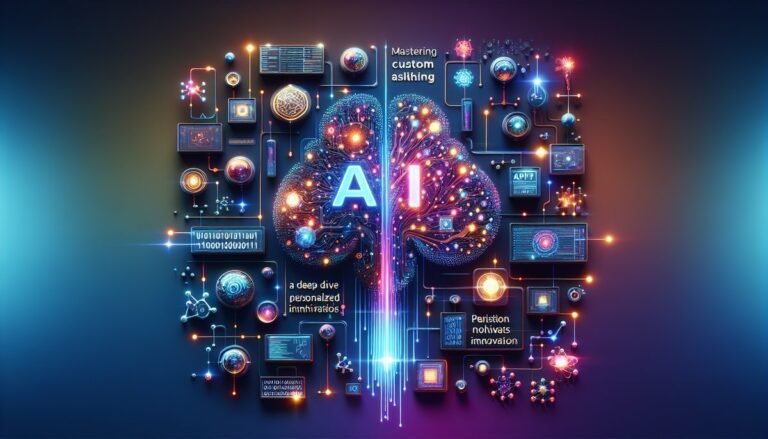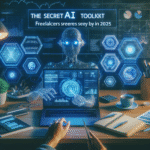The advent of AI in Software Engineering is more than just a technological evolution; it’s a paradigm shift that is reshaping the very foundations of how we conceive and construct digital solutions. As artificial intelligence continues to weave itself into the fabric of software development, the implications for the industry are profound and far-reaching. This transformative wave is not merely about automating mundane tasks but is poised to redefine roles, enhance productivity, and even challenge the very notion of what it means to be a software engineer.
The Dawn of a New Era
In the bustling world of software engineering, the introduction of AI has been likened to the industrial revolution, bringing with it unprecedented efficiencies and capabilities. Developers are now able to leverage Machine Learning algorithms to predict software bugs, optimize code, and streamline the development process. This new era is marked by a symbiotic relationship between human ingenuity and machine intelligence, where each complements the other in crafting robust and innovative solutions.
Automation and Its Impact on the Workforce
One of the most immediate effects of AI’s integration into software engineering is the automation of repetitive and time-consuming tasks. This shift allows engineers to focus on more complex and creative aspects of their work, such as designing intricate architectures or solving challenging problems. However, it also raises questions about job displacement and the need for the workforce to adapt to these changes. While some fear that AI might replace human jobs, many experts argue that it will instead create new opportunities and roles that were previously unimaginable.
Changing Skill Sets and Continuous Learning
As AI continues to evolve, the skills required to thrive in software engineering are also transforming. Traditional programming knowledge is now being complemented by an understanding of AI frameworks and data analysis. This evolving landscape necessitates a commitment to lifelong learning and adaptation. Engineers must now cultivate a blend of technical expertise and creative problem-solving abilities to stay relevant in an AI-driven world.
Economic Implications and Market Trends
The economic ramifications of integrating AI into software engineering are significant, with the potential to drive cost efficiencies and spur innovation across industries. Companies that successfully harness the power of AI can expect to gain competitive advantages, as they innovate faster and deliver higher-quality products. Market trends indicate a growing demand for AI-powered tools, underscoring a shift towards more intelligent and adaptive software solutions.
In conclusion, the rise of AI in Software Engineering is an exciting yet challenging development. It is reshaping the industry, prompting engineers to expand their skill sets and adapt to a rapidly changing environment. While the road ahead may be fraught with uncertainties, the potential for growth and innovation is immense. As we stand on the cusp of this new frontier, the only certainty is that the landscape of software engineering will never be the same again.
Transformative Shifts: How AI Reshapes Software Engineering Roles
The landscape of software engineering is undergoing a seismic shift, with AI in Software Engineering poised to redefine the industry. This transformation is driven by the rapid advancements in Machine Learning and automation technologies, which are progressively taking on tasks traditionally performed by human engineers. While this evolution brings efficiency and innovation, it also raises questions about the future roles of software engineers.
Historically, software development was characterized by manual coding, debugging, and testing processes. Today, AI-driven tools are capable of automating these tasks, allowing for faster and more reliable software delivery. For instance, AI systems can now generate code snippets, identify bugs, and even suggest optimal solutions to complex problems. This expansion of AI capabilities means that many routine engineering tasks are being delegated to machines. As a result, the role of a software engineer is shifting from implementing solutions to overseeing and managing AI-driven processes.
Case Studies: AI-Enhanced Productivity in Real-World Applications
Several companies have already embraced AI to enhance productivity and streamline their software development cycles. Take the example of Microsoft’s GitHub Copilot, an AI-powered code completion tool that assists developers by suggesting entire lines or blocks of code. This tool, powered by OpenAI’s language models, has transformed how developers approach coding, offering real-time assistance that significantly reduces development time.
Similarly, Google utilizes AI to optimize its code review processes, employing machine learning algorithms to detect potential defects and suggest improvements before the code is deployed. These practical applications highlight AI’s potential to augment human capabilities in software engineering, enabling developers to focus more on strategic and creative aspects, rather than mundane tasks.
Market Trends: Demand for AI Skills in Software Engineering
With AI tools becoming integral to software development, there is an increasing demand for engineers who possess both traditional coding skills and expertise in AI technologies. According to recent market analysis, job postings for software engineers with AI competencies have surged by over 70% in the last five years. Employers are not just looking for coders but rather professionals who can leverage AI to drive innovation and efficiency.
This trend is also reflected in the educational sector, where curricula are being updated to include AI and machine learning modules alongside conventional computer science subjects. As a result, new graduates are entering the workforce with a hybrid skill set that aligns with the evolving demands of the industry.
Hypothetical Scenarios: Navigating a Future with AI-Dominated Engineering
Imagine a future where AI handles most of the routine tasks in a software project. In this scenario, a software engineer’s role could evolve into that of a project strategist or an AI trainer. Rather than writing lines of code, engineers might focus on defining project goals, training AI systems to understand specific development environments, and ensuring ethical standards are integrated into AI operations.
- AI Training: Engineers could serve as trainers, teaching AI models to understand nuanced project requirements.
- Project Strategy: With AI managing routine tasks, engineers may dedicate more time to refining project strategies and ensuring quality delivery.
- Ethical Oversight: As AI becomes more autonomous, engineers will likely play a critical role in ensuring that AI applications adhere to ethical guidelines and regulations.
Challenges and Opportunities: Balancing Automation and Human Expertise
While the rise of AI in software engineering offers numerous benefits, it also presents challenges that need addressing. One major concern is the potential displacement of jobs. However, this shift also opens up new opportunities for engineers to upskill and transition into roles that require a deeper understanding of AI technologies.
The key to navigating this transition lies in continual learning and adaptation. Engineers who embrace AI tools and integrate them into their workflows will likely find themselves at the forefront of innovation, leading projects that shape the future of technology. Those who resist these changes may risk falling behind as the industry evolves.
In conclusion, the advent of AI in software engineering is not merely a threat but an opportunity to redefine the role of engineers. By leveraging AI as a partner rather than a replacement, the industry can achieve unprecedented levels of productivity and creativity. As engineers, the onus is on us to adapt, learn, and innovate alongside these intelligent machines.
Shaping the Software Engineering Landscape: AI’s Role in Redefining Opportunities
As Artificial Intelligence continues to advance, its impact on software engineering is both profound and inevitable. While AI is indeed poised to automate certain tasks traditionally handled by software engineers, it simultaneously opens up a realm of new opportunities. The current market trends indicate a shift toward hybrid roles that blend technical skills with AI proficiency, emphasizing the need for engineers to evolve alongside technology. Crucially, by embracing these changes, professionals can harness AI not just as a tool, but as a collaborator that amplifies human creativity and efficiency.
The future of software engineering isn’t about the replacement of jobs but the transformation of them. As industries integrate AI more deeply, engineers who adapt by diversifying their skill sets will find themselves at the forefront of innovation. Looking beyond conventional tech roles, AI offers fresh possibilities in areas like ethical AI development, AI-driven product management, and AI-enhanced user experience design. By focusing on these emerging fields, engineers can secure their relevance and contribute to shaping a more technologically harmonious future.
FAQs About AI and Software Engineering Jobs
Will AI eliminate software engineering jobs completely?
While AI will automate some routine tasks, it is unlikely to eliminate software engineering jobs entirely. Instead, it will shift the nature of these jobs, creating new roles that require a blend of traditional engineering skills and AI expertise.
How can software engineers prepare for the rise of AI?
Software engineers can prepare by upskilling in AI-related technologies, such as machine learning and data analysis. Engaging in continuous learning and remaining adaptable to technological changes will be key to staying relevant.
What new opportunities does AI create for software engineers?
AI creates opportunities in developing and managing AI systems, enhancing user experience through AI tools, and focusing on ethical AI considerations. Engineers who can integrate AI solutions into existing frameworks will be in high demand.
Are there industries where AI will have a minimal impact on software engineering jobs?
Industries with a heavy reliance on bespoke, creative coding solutions may see less direct impact from AI. However, even in these sectors, AI can enhance productivity and innovation, suggesting a more integrated future across all fields.
Journey Beyond: Exploring AI’s Expansive Influence
- Ai 171 Uk Convocations
- Best Ai Text Generators 2025
- Ai Content Generators 2025
- Google Ai Tool Impact
- Anthropic Ai Books
- Wireless Carplay Guide Benefits Compatibility






